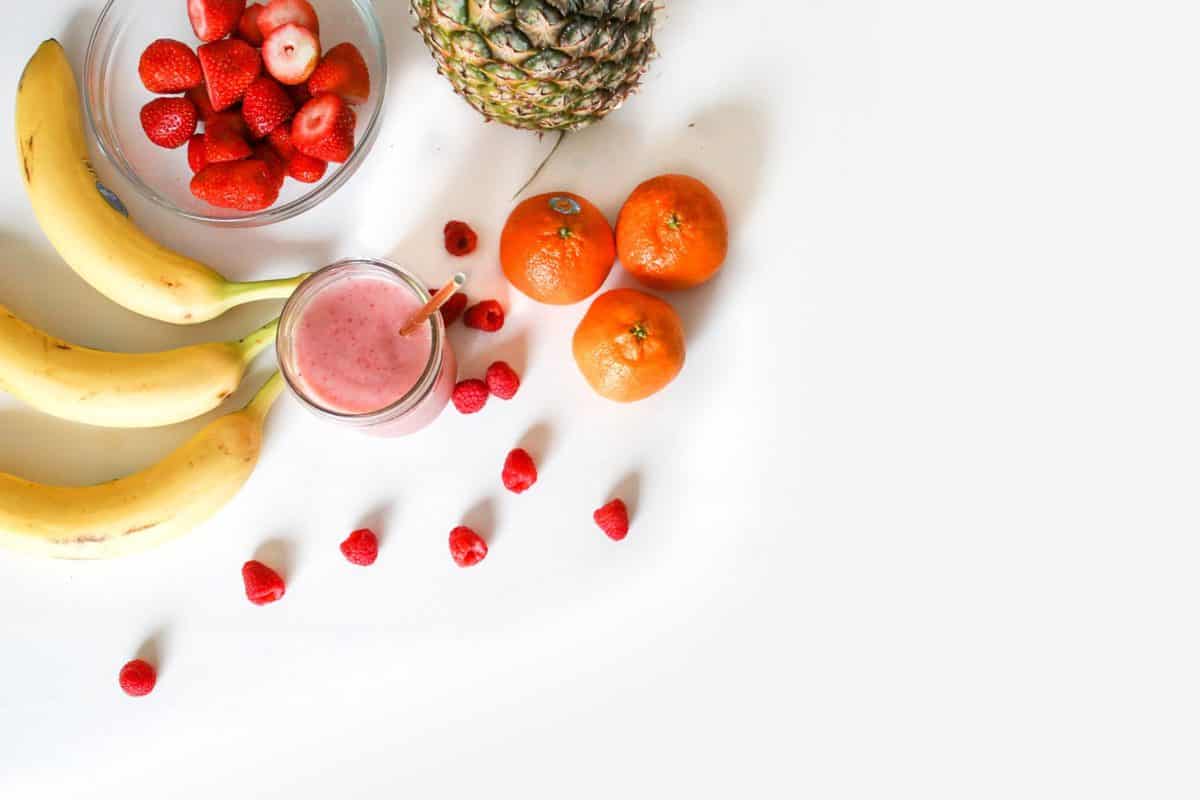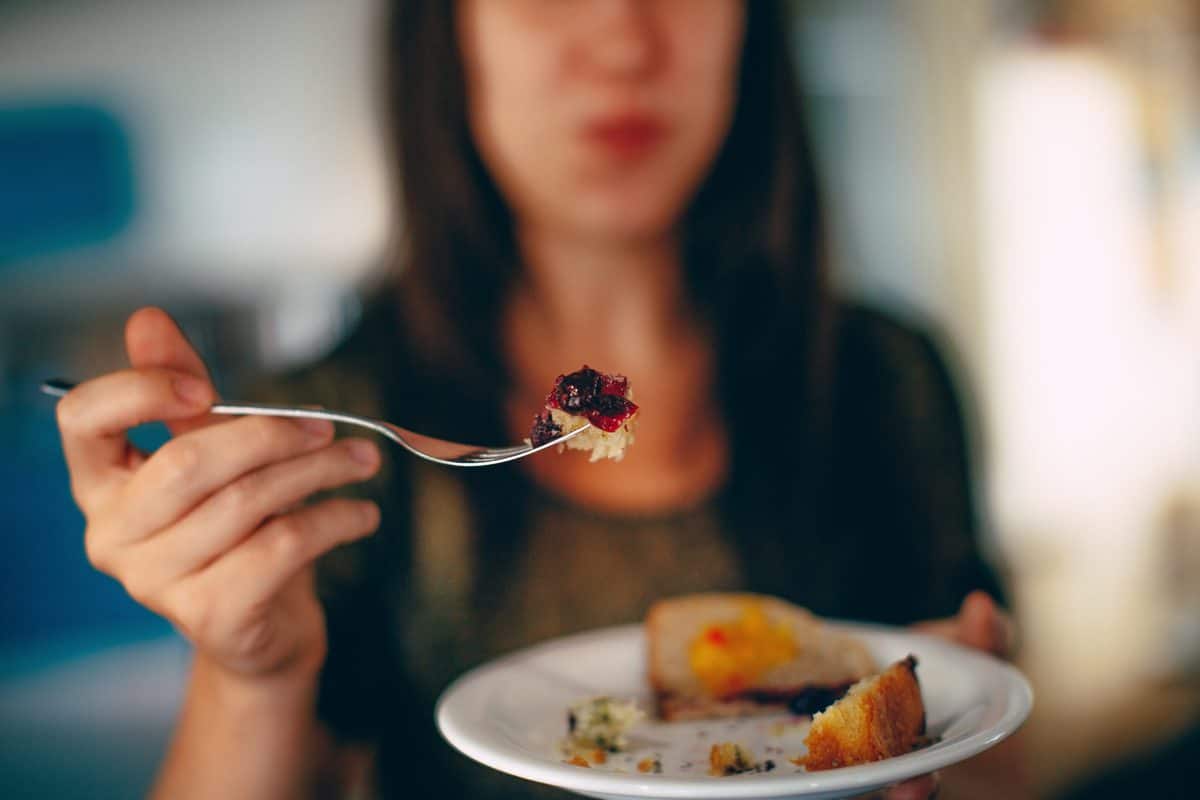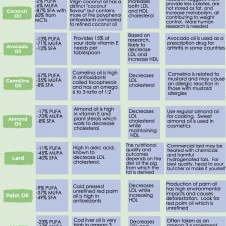We look at concerns around weight loss for teens, teenage nutrition, risks, and whether or not diets are safe for growing kids.
In the age of fitspo, selfies, social media and comparison culture, being a teenager is undoubtedly really tough. Everywhere teens look, there seems to be an overwhelming pressure to have their body look a certain way, along with dangerous “wellness” strategies on how to achieve it. Considering “influencer” is a real job title these days, it’s no surprise that more teens are being influenced by the health and wellness information they see online. Since social media is unregulated territory, diet culture is free to run rampant and spread misinformation to anyone who will lend an ear. So, what does this mean for our teens?

Well according to research, about 1 in 2 teenage girls and 1 in 4 teenage boys have tried dieting in an attempt to change their bodies or lose weight. Children as young as the age of seven start to worry about their weight and begin weight loss diets. A teen may seek dieting for weight loss for a multitude of reasons, but the most common factors that influence weight loss for teens include – low self-esteem, body image issues, parents dieting or encouraging their teens to diet, peer pressure, weight-related teasing, and involvement in weight-related sports.
With that said, is weight loss for teens safe and does it pose any risks to their growth and development? And should weight loss diets even be recommended for teens who are overweight? Let’s look at the research to find out.
What are the nutritional needs of teens?
First, let’s go over the nutritional needs of teens at this life stage, and how they may differ from that of adults. Adequate nutrition is of critical importance during these years in order to support important growth and development, which is why macronutrients and micronutrients needs are higher for a teen’s growing body.
Calories
Teens require increased energy needs and nutrition to support their growth and development into adulthood. This would explain why teens often experience an increased appetite at this age and/or eat more frequently. On average, active teen boys require anywhere from 2200-3200 calories a day depending on their age (with energy needs increasing to the upper range as they turn 16-19 years old). Active teen girls on the other hand require 2000-2400 calories a day. When compared to adult requirements, adult men require approximately 2400-2600 calories a day and adult women require approximately 1800-2000 calories a day. These amounts may vary depending on activity level, but on average, adult needs are roughly 200-600 calories LESS than that of the energy needs of growing teens.

Macronutrients
Carbohydrates
Carbohydrates are the body’s main energy source and can be obtained from a variety of different sources like fruit, starchy vegetables, whole grains, and dairy products. The American Academy of Pediatrics recommends that teens obtain 50-60% of their calories from carbohydrates which would be around 130 g of carbs per day.
Protein
Protein is important for muscle building, tissue repair, and is also involved in making enzymes, hormones, and antibodies. Teens require between 10-30% of their daily calories from protein with differences in needs dependent on age, sex, body weight, and stage of development. So a teen girl consuming 2200 calories a day would need between 55-165 grams of protein daily, depending on her activity level. Protein can be obtained from a variety of animal-based sources (such as meat, poultry, fish, and dairy) as well as plant-based sources (such as tofu, nuts, beans and legumes).
Fats
Dietary fats provide the body with an alternative source of energy and help to support cell growth. They also facilitate the absorption of fat-soluble vitamins like vitamin A, D, E, and K. It is recommended that teens obtain approximately 25-35% of calories from fat per day from healthy sources such as fatty fish, nuts, seeds, avocado, and olive oil.
Micronutrients
Calcium
Calcium is important for the development of strong bones and normal muscle function. In fact, at least 90% of peak bone mass is acquired during our teenage years which is why teens require about 1,300 mg of calcium per day compared to adults who require 1,000 mg of calcium. Most dietary calcium comes from dairy products like milk, cheese, and yogurt. Other non-dairy sources include leafy greens, tofu, almonds, calcium-fortified juices and plant-based milks.
Vitamin D
Similar to calcium, vitamin D is an important nutrient for bone-health as it promotes calcium absorption. In addition, vitamin D also plays a role in cell growth and immune function. Teens and adults require at least 600 IU of Vitamin D per day. The best way to meet vitamin D needs is through sun exposure and supplements. However, you can also obtain vitamin D from food sources such as fatty fish and eggs, as well as fortified foods like milk (dairy and non-dairy), yogurt, cereal, and juice.

Iron
Iron is involved in making hemoglobin, which is a protein in red blood cells that transports oxygen throughout the body. Females require more iron in the diet due to losses during menstruation which is why teen girls require 15 mg of iron a day compared to teen boys who require 11 mg of iron a day. Foods that are rich in heme-iron (more bioavailable) include meat, poultry, and seafood. Sources of non-heme iron (less bioavailable) include tofu, beans, dark green leafy vegetables, dark chocolate, and fortified cereals.
Zinc
Zinc is an important mineral involved in immune function, wound healing, and cellular metabolism. It also supports growth and development during childhood and adolescence. Teens boys require 11 mg of zinc a day and teen girls require 9 mg (which is the same requirement for adult males and females, respectively). Zinc is found in a variety of protein-rich foods (both animal and plant-based) including meat, poultry, seafood, beans, nuts, seeds and dairy products.
Potassium
Potassium helps regulate fluid balance, muscle contractions, and nerve signals. Teen boys require 3,000 mg of potassium and teen girls should be getting 2,300 mg. These recommendations are slightly lower than adult needs, as male adults require 3,400 mg and adult females require 2,600 mg . Some excellent sources of potassium include foods like fruit (bananas, prunes, kiwi), vegetables (squash, spinach, tomatoes, broccoli), lentils, kidney beans, soybeans, nuts, milk, and yogurt.
Fibre
Fibre plays a major role in digestive health as it helps to keep bowel movements regular. Teen boys and adult males require 31 grams of fibre per day while teen girls and adult females require 25 g per day. Sources of fibre include fruits, vegetables, beans, whole grains, nuts and seeds.
Is weight loss for teens safe?

Similar to adults, a teen’s body weight may naturally fluctuate due to growth spurts, hormone shifts and body adjustments. With that said, weight gain is a normal part of healthy growth and development. On average, adolescent girls may gain roughly 40-50 pounds or so during puberty, while boys may gain upwards of 50-60 pounds. However, intentional weight loss through dieting is potentially a slippery slope for teens that may not only lead to nutritional deficiencies, but may also impact growth, development, emotional health and a teen’s future relationship with food. It’s also important to note that lifestyle habits established during this time can carry into adulthood and have lifelong implications, which we will discuss in further detail below.
Nutritional Deficiencies
Considering the nutritional needs of teens are higher than that of adults to support growth and development, dieting can very often lead to nutritional deficiencies, which in turn can have a number of physical and psychological health consequences. For example, research suggests that even a minor reduction in energy intake can slow down growth and development in teens. Dieting can also put teen girls at risk for menstrual irregularity or amenorrhea (the absence of their menstrual period) which can impact long-term fertility outcomes. Amenorrhea can also lead to the thinning of bones (aka osteoporosis) due to the lack of estrogen which is important for bone health. Dieting and restricting food can also put a teen at a greater risk for Osteoporosis (regardless if they are menstruating or not) because it may increase the likelihood of insufficient calcium and vitamin D intake. This is especially true for teens who may follow specific diets, like a vegan or vegetarian diet, while not paying attention to getting enough non-animal-based calcium and vitamin D foods. Moreover, dieting can also put a teen at risk for iron deficiency anemia which can impact physical and cognitive growth and impair a teens capacity for learning.
Growth & Development
During the teenage years, it’s natural for teens to hit a growth spurt and gain weight as a normal part of healthy growth and development. However, poor nutrition through caloric restriction and dieting can stunt a teen’s growth and prevent them from reaching their growth potential. Under-nutrition can also delay puberty and the onset of a teen girls’ menstrual period which can further delay a teen’s linear growth trajectory. The good news is that it is possible for “catch up” growth to occur once normal eating resumes, which can return a teen to their genetic growth trajectory.
Teen brains also undergo significant growth and development during this period, and without proper nutrition the brain’s ability to learn new tasks and skills decreases, which can impact learning and academic performance. In addition, research suggests that caloric restriction through weight loss diets can also make teens more susceptible to becoming irritable, depressed, and anxious.
Disordered Eating

The early teenage years are an important time for an individual to establish healthy eating habits and develop their relationship with food. Studies have shown that dieting during the adolescent years can potentially have lifelong implications for disordered eating as young teens who diet are more likely to diet in adulthood. Other studies have shown that dieting in young people can lead to disordered eating behaviours like binging and purging, and these individuals are 6 times more likely to develop an eating disorder. However, it is important to note that not all young people (or adults) who go on a diet will develop an eating disorder. But what we do know, is that weight loss for teens IS considered a risk factor for developing disordered eating or an eating disorder. In addition, research has shown that similar to dieting adults, teens who diet are more likely to regain the weight lost. One study found that teens who engaged in dieting were 2-3 times more at risk for being overweight, compared to teens who did not engage in dieting behaviours.
Psychosocial Impacts
The psychosocial impact from diets encouraging weight loss for teens is also important to mention because it can impact how teens feel about themselves and how they relate to the world around them. Teens with lower self-esteem are especially susceptible to dieting as they may perceive dieting and weight loss as a means to feel good about themselves and their bodies and/or be accepted by their peers and society. However, dieting is associated with a number of psychological implications including depression, mood swings, irritability, poor concentration, and body image issues. Studies have also shown that food deprivation can lead to food preoccupation and a tendency to overeat after a period of restriction (aka the binge restrict cycle).
When is dieting and weight loss for teens more common?
There are a number of scenarios where teens are more likely to engage in risky weight loss or dieting behaviour. These include participating in aesthetic sports, experiencing peer pressure or being the victims of bullying.
Aesthetic Sports

One of the major reasons why a teen may engage in risky weight loss behaviours is for aesthetic or weight class sports. Some teens may feel pressure, either directly or indirectly to lose weight or change their body by their coaches, teams and sport culture. Teens who participate in weight-class sports, such as wrestling and boxing, may feel there is a competitive advantage to losing weight quickly to qualify for the lowest weight class. Teens who are involved in aesthetic sports, including dance and gymnastics, also may think that weight loss will increase their success in the sport. Therefore, these athletes may restrict calories, take supplements, or excessively exercise to lose weight. However, weight loss for teens can quickly become a problem for young athletes if their nutritional needs are not met, they are not adequately hydrated, or they are engaging in unhealthy weight loss behaviours (like laxatives use, purging, diet pills) which can further their health risks. Unhealthy weight loss in these instances also has the potential to impair athletic performance, increase injury risk, reduce muscle strength, as well as decrease mental and cognitive performance.
Peer Pressure/Bullying
Engaging in extreme dieting and weight loss methods may negatively impact anyone at any point in the life cycle, but particularly for those in the peak for physical and emotional development. Teens are highly susceptible to peer pressure and bullying to look or behave a certain way in order to feel accepted by their peers. The ‘pressure to be thin’ can be felt by not only weight loss messaging in the media, but it can also be conveyed by parents and peers. This pressure to be thin can often lead to increased body dissatisfaction, disordered eating, and other unhealthy weight control practices.
Should an overweight teen try to diet and lose weight?
We live in an inherently fatphobic society so it’s understandable that any teen may want to lose weight. It’s also common for adults and health care providers around them to suggest weight loss. However, it is very important that parents not shame their child about their weight, or withhold experiences or even food in an attempt to shrink their body. Not only can this have major physical health implications, but it can also set them up for long term emotional struggles as well.
If your goal is to help without harm and allow your child to grow into their healthiest happiest weight, the gold standard of feeding is Ellyn Satter’s Division of Responsibility (sDOR). I’ve broken down the feeding principles of the Division of Responsibility for picky eating which you can read all about right here and here. While at this age, teens can be given a bit more freedom in choosing and preparing their meals, the parent is still ultimately responsible for what is served, and often, where and when it’s served, and the teen is responsible for what they decide to eat, and how much. The parents’ job is to ensure regular meals are available, make eating times pleasant, and the teen’s job to eat the amount they need, and grow predictably. It is all about trusting your child to make the right decisions in determining what and how much food they want to eat from what they are provided.
Bottom Line on Weight Loss for Teens

Being a teen isn’t easy by any means, especially with diet culture messaging constantly bombarding their newsfeeds. What diet culture won’t tell teens is the negative impact that dieting can have on this important period of growth and development. Obtaining adequate nutrition, linear growth, and pubertal development are of critical importance during these years and dieting for weight loss can potentially delay teens from reaching their health potential. This is why developing a healthy relationship with food early on through structured meal times and variety can help to set teens on a path towards a healthy relationship with food and their bodies.
Research by RD Student Gila Gross
Edited by Giselle Segovia RD MHSc
More Blog Posts You Might Like
If you enjoyed this post, check out these others on the blog!
- Intermittent Fasting and Working Out | The Pros and Cons for Weight Loss
- Intuitive Eating Weight Loss? | Sustainable Gentle Nutrition Tips
- Why the WW Kurbo App for Children & Teens Will do More Harm than Good
- Dietitian’s Feeding Tips for Picky Eaters
What were you told about weight loss as a teen? Leave me a comment below!

Abbey Sharp is a Registered Dietitian (RD), regulated by the Ontario College of Dietitians. She is a mom, YouTuber, Blogger, award winning cookbook author, media coach specializing in food and nutrition influencers, and a frequent contributor to national publications like Healthline and on national broadcast TV shows.





Jessica Raven says
As a 16-year-old, when I was trying to eat healthy (eating more veggies and fruits and trying to follow your tips from your YouTube channel), I tracked my calories once and ended up having 1,650 calories even though I am not trying to lose weight. I often forget to eat lunch and feel pretty tired during the afternoon. What should I do to eat more calories in a healthy way?
Abbey Sharp says
Hi Jessica, I have a video on my YouTube about healthy weight gain tips. Always speak to your doctor or a dietitian for your unique needs!
Aneka Bellingan-Kruger says
Hi there, I am currently 18 and was diagnosed with anorexia at 17. I struggle a lot with body dysmorphia and I am petrified of weight gain… every time I try to eat normal I feel horrible and gain loss of weight (I am at a healthy weight though).
Can you help me?
Abbey Sharp says
I would strongly suggest working with your doctor and a dietitian specializing in eating disorders to provide you with individualized support.
Lindsey A says
Hello! I’m a teen (just about 16 years old) and I recently recognized that I’d developed orthorexia. I read a lot of stories (including your own!) and taken lots of tests and I fit the categories almost completely. With my family’s financial situation, I can’t afford to speak to a registered dietitian or therapist. Is there anything you’d recommend doing at home? Any and all help would be greatly appreciated <3
(I am currently following a strict WFPB diet, vegan for ethical but I learned more about health and nutrition and that lead me to the place I am now, and I've been addicted to using Cronometer so I don't have to worry about deficiencies)
Abbey Sharp says
It would definitely be best to speak to an eating disorder dietitian so they can give you individualized advice. But you might also find it helpful to watch my intuitive eating series on youtube or read the book that its based off of called “Intuitive Eating: A revolutionary program that works” by Evelyn Tribole and Elise Resch